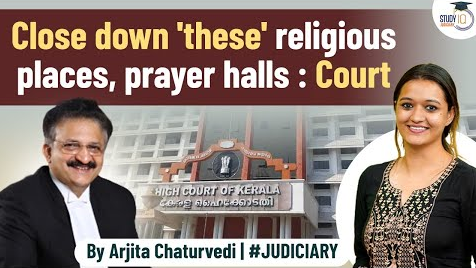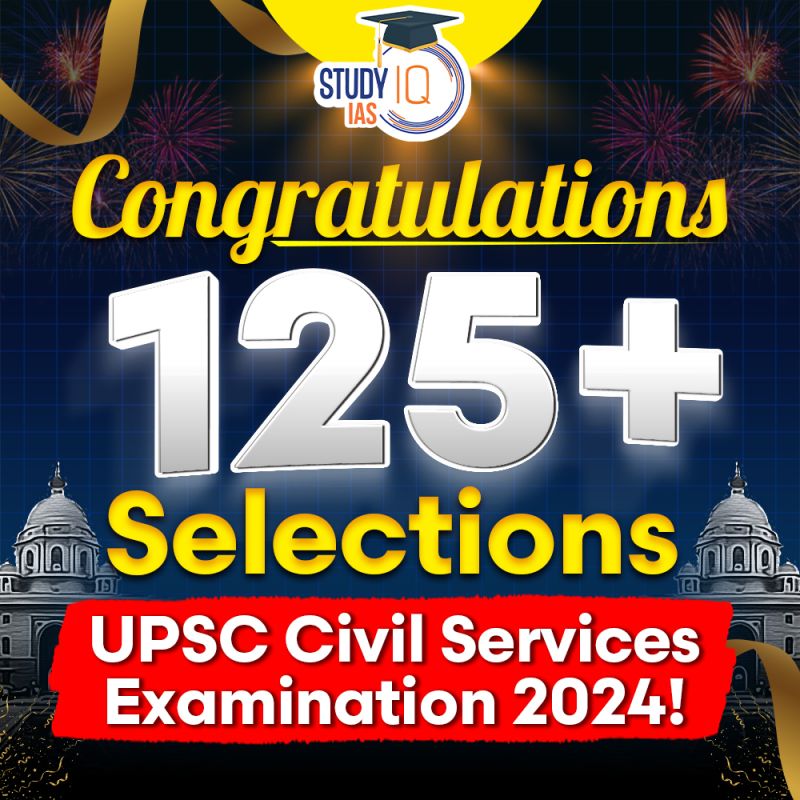Table of Contents
Relevance for Judiciary Exam Places of Worship Act
UPSC Prelims GS 2 – Places of Worship (Special Provisions) Act, 1991, Indian Polity, Indian Constitution
Kerala High Court orders to close down worship places or religious places
- Kerala High Court Orders Government To Close Down Religious Places And Prayer Halls That Are Functioning Illegally And Without Obtaining Permission
Noorul Islam Samskarika Sangham v. The District Collector, Malappuram & Ors. - A petition was filed in the Court seeking to convert a commercial building to a Muslim place of worship, in an area were there were already 36 Mosques within 5 kilometers radius of the said building. The same was sought on the ground that ‘five times prayer’ is necessary for a Muslim and thus, a prayer hall within the vicinity was a necessity for every Muslim.
- The Court also perused the relevant portions in the Quran and observed that, although the verses of the Holy
- “clearly highlights the importance of Mosque to the Muslim community. But, it is not stated in the above verses of the Holy Quran that Mosque is necessary in every nook and corner”.
- Though Article 26 (a) of the Constitution states that subject to the public order, morality and health, every religious denomination or any section thereof shall have the right to establish and maintain institutions for religious and charitable purposes, it does not mean that they can construct religious places in every nook and corner of the country
Kerala High Court issues direction for the religious places or worship places
- The Kerala High Court issued a direction to the State Government to close down religious places and prayer halls that were functioning illegally and without permission.
- Justice P.V. Kunhikrishnan directed the Chief Secretary of State of Kerala and the State Police Chief to issue necessary orders/circulars directing all the officers concerned to see that there were no illegal functioning of any religious places and prayer halls without obtaining permission from the competent authorities as per the Manual of Guidelines and if any such religious place or prayer hall is functioning without necessary permission, to close down the same immediately
- In such orders, it also ought to be mentioned that the distance to the nearest similar religious place/prayer hall is one of the criteria while considering the application for religious places and prayer halls.
- The court asked the State authorities to consider the applications to start religious places and prayer halls strictly and issue the approval only in appropriate cases.
- Additionally, the Court further directed the Chief Secretary of the State of Kerala to issue a separate circular/order prohibiting change of category of a building to a religious place/ prayer hall except in inevitable circumstances and in the rarest of rare case
The Court further remarked on Worship Places or Religious Places
- “God is there everywhere. If the Muslim community wants to conduct their ‘prayers’ in the mosque itself, they can go to the nearest mosque instead of constructing a new prayer hall near to their residence”,
- while noting that the State of Kerala was “exhausted with religious places and prayer halls and we are not in a position to allow any new religious places, and prayer halls except in the rarest of rare cases”.
Number of religious places in Kerala
- According to the 2011 census, there are 1018 villages in Kerala, along with 87 Municipalities and 6 Municipal Corporations sharing 1,01,140 places of worship along with 29,565 hospitals.
- The number of places of worship in Kerala is almost 3.5 times higher than the number of hospitals in Kerala.
- If further religious places and religious prayer halls are allowed in Kerala without any guidelines, there will be no place for the citizens to reside”.
- It was in this light that the Court declared that the category change from one category to religious place would not be necessary unless there are sufficient reasons for the same.
- If every Hindu, Christian, Muslim, Jews, and Parsi among others starts to construct religious places and prayer halls near his or her residence, the State would face consequences such as communal disharmony.


 Pakistan-Occupied Kashmir (PoK): History...
Pakistan-Occupied Kashmir (PoK): History...
 List of Indo-Pakistan Wars and Conflicts...
List of Indo-Pakistan Wars and Conflicts...
 Daily Quiz 24 April 2025
Daily Quiz 24 April 2025






















